What’s the Solution for My Jaw Stiffness and Weird Smile?
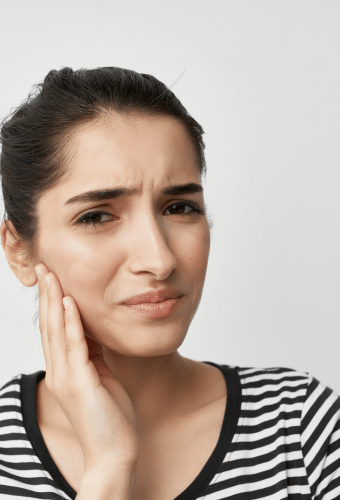 What’s the solution for my jaw stiffness and weird smile? My upper teeth don’t show when I smile unless I force my lips up. I am very self-conscious about it. I don’t know if my jaw, teeth, or lips are unbalanced because I have jaw pain even throughout the day. I wear a nightguard, which makes my mouth and lips feel better, but I can’t wear it all day. P and T words are particularly difficult to pronounce during cold weather because my jaw seems tight, and I can open it enough to enunciate. Is this something dental veneers would, correct? Are they my only option? – Thank you. Iris from Long Island
What’s the solution for my jaw stiffness and weird smile? My upper teeth don’t show when I smile unless I force my lips up. I am very self-conscious about it. I don’t know if my jaw, teeth, or lips are unbalanced because I have jaw pain even throughout the day. I wear a nightguard, which makes my mouth and lips feel better, but I can’t wear it all day. P and T words are particularly difficult to pronounce during cold weather because my jaw seems tight, and I can open it enough to enunciate. Is this something dental veneers would, correct? Are they my only option? – Thank you. Iris from Long Island
Iris,
Please find another dentist if your current one recommends porcelain veneers to resolve your concerns. Although porcelain veneers might improve your smile, they could worsen your jaw pain and pronunciation problems.
It sounds like your teeth are worn, resulting in an overclosed bite. This could cause jaw pain, tightness, and other symptoms related to TMJ disorder. Feeling better when you wear a nightguard further indicates that you might have an overclosed bite. However, a dentist trained in TMJ diagnosis and training can confirm it.
What’s the Treatment for an Overclosed Bite?
Instead of porcelain veneers to correct an overclosed bite, a dentist with advanced TMJ training will probably recommend full-mouth reconstruction. A skilled dentist may recommend combining treatments, such as dental crowns or implants.
Schedule Consultations
Finding a dentist with adequate training and experience can be tricky, so look for dentists with advanced training from one of these institutes:
- The Pankey Institute in Florida
- The Dawson Academy, also in Florida
- The Las Vegas Institute for Advanced Dental Studies
If you find more than one dentist with the desired training, you can schedule consultations with at least two dentists to compare your options.
Rocky Hill, CT, dentist Dr. Thaddeus Michalski sponsors this post.
How Can I Save My Loose Tooth?
Can an emergency dentist save my loose tooth, or do I need an oral surgeon? I tripped over a cement parking space block and fell face forward. That was two weeks ago, and now I’m starting to feel my left front tooth is loose. I chipped two other teeth, but they did not hurt. I was flossing two nights ago and thought the tooth was loose, but now, I am sure. My regular dentist is almost 45 minutes away, but I haven’t seen him in two years because of ongoing problems with a crown that he couldn’t resolve. Should I see an emergency dentist for this, or can I schedule my regular dentist to be referred to an oral surgeon? I hope I don’t need another crown because the one I got two years ago still gets sensitive sometimes when I chew on the left side of my mouth. Thank you. Evan
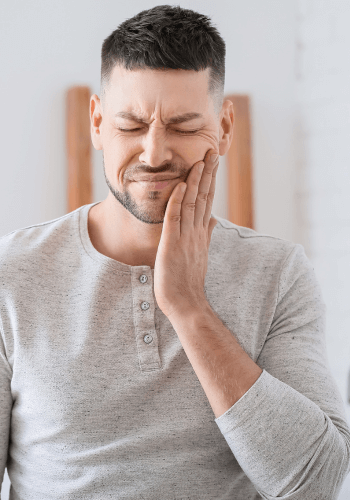
If your tooth is loose, you have a dental emergency. It is best to see your dentist, but if the distance is a problem, find a nearby experienced dentist who takes emergency cases.
How Can You Save a Loose Tooth?
Before treating a loose tooth, your dentist will examine it and take an X-ray. A dentist can stabilize the tooth by splinting or bonding it to adjacent teeth. Splinting or bonding will help tooth ligaments heal on their own. A dentist will also check your tooth for internal damage. If the tooth pulp is affected, after the ligaments heal, you will need root canal treatment to remove the dying tooth pulp. Root canal treatment will prevent infection and further problems with the tooth. The dentist will protect your tooth with a dental crown.
Until you see your dentist, take these precautions:
- Avoid chewing on the damaged tooth
- Do not touch it or wiggle it
- Do not floss between it
- Eat soft food
- Take anti-inflammatory medication to reduce swelling and promote healing
Healing will take a few weeks if your tooth ligaments are mildly damaged. More extensive damage can take months. You will have periodic checkups to ensure the healing is progressing well. Closely follow your dentist’s instructions for caring for your tooth after the dentist stabilizes it.
If your current dentist placed your crown last year, and you still have discomfort, consider consulting with a dentist with advanced occlusion and bite training. Preparing your tooth precisely and ensuring the crown fits well prevents sensitivity, discomfort, and potential TMJ symptoms. You can also ask the dentist to check your existing crown to determine why it is causing sensitivity.
Rocky Hill, Connecticut, cosmetic dentist Dr. Thaddeus Michalski sponsors this post. Read how he strives to provide patients with some of the best dental care in Rocky Hill.
Why Are My Dental Crowns the Wrong Color?
My dental crowns are the wrong color. They looked lighter in the dental office. The crowns are for my center front teeth and left incisor. When I was in the dental office, the crowns looked like they matched my other teeth perfectly, so I agreed that my dentist could cement them on. Fortunately, they fit well, and I don’t have any problems with my bite. When I got home, I looked at them in the mirror. The crowns looked like they had a grayish-blue tint and did not match my teeth. I went outside and looked in the mirror but still saw the tint that I did not see in the dental office. I’m confused. Thanks. Tammi
Tammi,
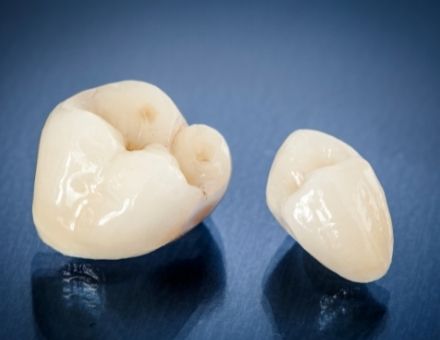
We ask because if your dentist placed the crowns on your teeth without a try-in paste, they do not transmit the underlying tooth color as they would with a bonding material between the crowns and teeth. A grayish-blue tint can result from a stain or a metal post in a tooth. Some cosmetic dentists use clear glycerin during the try-in to mimic the crown color after it is cemented to a tooth.
Another possibility is metamerism, which means that the color of certain materials varies with the type of light, such as fluorescent light versus daylight. However, high-quality, clear bonding cement does not change color when the dentist cures it by attaching the dental crown to your tooth.
We recommend taking pictures of your teeth in various lighting to show to your dentist. Ask friends or family if they can see the color difference between your new crowns and surrounding natural teeth. Talk to your dentist about your concerns and ask how you can work together to resolve them.
If your dentist’s attempts are unsuccessful, consult an advanced cosmetic dentist for a second opinion.
It is good that your crowns fit well and are not disrupting your bite, contributing to jaw pain and other TMJ concerns. We hope you get a resolution for the color mismatch.
Rocky Hill, Connecticut, cosmetic dentist Dr. Thaddeus Michalski sponsors this post. Read how he strives to provide patients with some of the best dental care in Rocky Hill.
Bumps on My Teeth Near the Gumline
Hello. I used to brush my teeth very roughly. As a result (I think), I have a lot of notches or bumps on my teeth along the gumline of my teeth. I put “I think” in parentheses because when I mentioned this to a friend of mine who is a dental hygienist, she said the bumps on my teeth are probably from TMJ. Is this true? Will these bumps cause more problems with my teeth, like stains and cavities? Will I eventually need dental crowns? How can I get rid of the bumps? Thank you. Miguel
Miguel,
Thank you for contacting Radiant Smiles in Rocky Hill about the bumps on your teeth.
What Causes Bumps on Your Teeth?
Recent studies show that biting stress or bruxism is the most likely cause of bumps or notches on your teeth near the gumline, as opposed to aggressive brushing. According to a dentalcare.com article on the clinical signs of bruxism, you or your dentist may notice the following:
- Worn tooth edges
- Tooth flexing that leaves scoops or notches
- Chips
- Breaks
- Cracks
- Fractures
Identifying the Cause of Bumps on Your Teeth
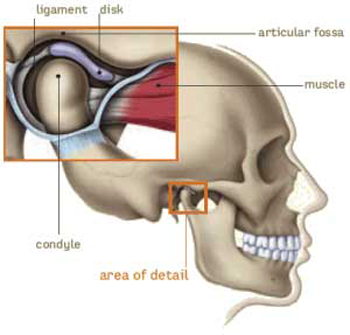
An experienced dentist can examine and x-ray your teeth to identify the cause of the notches or bumps on your teeth. Rather than using cosmetic dentistry immediately to cover the imperfections, the dentist will determine how to minimize them. Still, it is unlikely that you will need treatment as aggressive as dental crowns to conceal the bumps. If you grind or clench your teeth, the dentist will recommend a custom night guard to reduce the pressure and protect your teeth.
We recommend scheduling an appointment with a cosmetic dentist with advanced TMJ training to explore whether you grind your teeth. The dentist will also ask questions to determine if you have TMJ symptoms, including headaches, earaches, or jaw pain.
Rocky Hill, Connecticut, cosmetic dentist Dr. Thaddeus Michalski sponsors this post.
I Didn’t Have TMJ Until I Went to the Dentist
Although my teeth were in bad shape because I hadn’t been to a dentist in three years, I didn’t have TMJ until after my dental appointment. I saw a new dentist in September 2022. After an exam and x-rays, I agreed to gum disease treatment, fillings for a few teeth, and four dental crowns. I got the crowns in early December and have had trouble with them since then. The dentist keeps adjusting my bite but can’t seem to get it right. I have jaw pain on the right side of my mouth, and chewing on that side is uncomfortable. I think this dentist created a new problem and asking me to wear a mouthguard at night is an insult. I am worried that my bite will be off forever. I took a break from the dentist to think about what to do next. Can my TMJ problems be reversed? Thanks. Kenneth from Spokane, WA
Kenneth,
You had a lot of work on your teeth, so we understand your concerns.
Did Dental Treatment Cause TMJ?
Dental treatment does not usually cause TMJ. If you have long dental appointments, your jaw muscles can get sore from being open. If you feel muscle soreness only, applying warm towels on your face will relieve your temporary discomfort.
Jaw Muscle Soreness from Dental Crowns

If your jaw muscles are sore from dental crowns, your bite is off. It takes skill and advanced training in occlusion and bite (the way your upper and lower teeth meet.) Your soreness and other symptoms will persist until you find a dentist to correct your bite.
If a dentist cannot adjust your bite with crowns, the problem may be related to one or more of these factors:
- Inaccurate impressions of your teeth
- Aggressively preparing your teeth for crowns
- Faulty bonding techniques with the crowns
- Poorly constructed crowns
We recommend scheduling a consultation with an advanced cosmetic dentist with TMJ training to examine your teeth and crowns and identify the source of your discomfort.
Rocky Hill, Connecticut, cosmetic dentist Dr. Thaddeus Michalski sponsors this post.
Why Does My Root Canal Tooth Hurt After Weeks of Antibiotics?
My second molar root canal tooth still hurts, although my dentist completed the root canal in August of this year. My dentist prescribed antibiotics twice, but the tooth still hurts. The pain is severe when I chew. Should I ask her for more antibiotics, or is something else wrong? Thank you. Anita from Dover, DE
Anita,
Thank you for choosing our office for your question.
Although Dr. Michalski would need to examine your tooth and x-rays for an accurate diagnosis, we can explain what may be happening.
What Causes Continued Pain After Root Canal Therapy?

Causes of pain after root canal therapy may include these factors:
- Untreated root canals – Sometimes, a tooth has multiple or curved channels. The condition will persist if your dentist misses canals or cannot clear the infection from curved canals.
- Infection in another tooth – Pain from another infected tooth can refer to the root canal tooth.
- Irritation and inflammation – Clearing infection from a tooth can irritate it, leaving it inflamed and sensitive. It can take several weeks for the sensitivity to fade. A dentist may make a thin custom mouth guard to wear and night and relieve the pressure on the inflamed tooth. Otherwise, continued stress on the tooth can lead to jaw pain, earaches, headaches, and other TMJ symptoms.
- Irritation from crown preparation– Removing tooth structure to prepare the tooth for a dental crown can irritate it. The irritation should improve gradually.
Questions to Ask to Determine the Source of Discomfort
An accurate diagnosis includes asking you these questions:
- Is your discomfort better, worse, or the same after root canal therapy?
- Do you feel sensitivity to heat or cold in the tooth?
- Other than chewing, what triggers the pain?
Ask your dentist for an x-ray to ensure she cleaned the infection from all the canals. If canals are challenging to detect or reach, your dentist must refer you to an endodontist (root canal specialist) for further treatment. Specialists have tools designed to reach challenging canals.
Rocky Hill, Connecticut dentist Dr. Thaddeus Michalski, sponsors this post.
Why Do I have Jaw Tightness and Speech Issues?
My lips, teeth, mouth, and jaw feel most comfortable when I wear a night guard. I wonder if I may need braces. I do not like my smile because my upper teeth barely show when I smile. My jaw is tight, so some words are more difficult to pronounce. Other than braces, what might be my treatment options? What should I ask for when I find a dentist? – Thank you. Doug from Salem, OR
Doug,
Thank you for your questions. We are glad that you contacted Dr. Michalski’s office. Although he would need to examine your teeth and take x-rays, it sounds like you may have a collapsed bite, TMJ disorder, or both.
What Is Causing Your Jaw Tightness and Speech Issues?

You may have TMJ disorder when you experience jaw tightness and speech complications. A collapsed bite can cause some of your symptoms. You may require a combination of dental procedures to resolve the symptoms. We recommend scheduling an appointment with a dentist experienced in full-mouth reconstruction. After a comprehensive exam, your dentist will determine whether your discomfort is only TMJ-related or if other factors are involved.
Resolving your dental problems requires complex restorative dentistry, but a dentist with advanced training can do it. The dentist’s adjustments to your bite should relieve your pain, improve your smile, and resolve your concerns with your speech. Opening your bite may require provisional restorations until a dentist achieves success in restoring your dental health. Afterward, the dentist will use a ceramist to make your final restorations. Your treatment options may include:
- Orthodontics
- Dental crowns
- Dental implants if you have missing teeth
We emphasize the importance of finding two dentists with advanced training in consultation, checking their reviews, and ensuring they do not have disciplinary actions from the state dental board. You will require complex, intricate dental work that requires great skill. Schedule a consultation with each dentist to discuss your concerns and treatment options.
Rocky Hill, Connecticut cosmetic dentist Dr. Thaddeus Michalski, sponsors this post.
Do I Need a TMJ Dentist to Fix My Crown?
I think I need to see a TMJ dentist or specialist about my crown. I got the crown in late February, and I’ve had problems ever since. My dentist has made “adjustments” five times, but my bite is off, and I have jaw and neck pain. I didn’t have these problems in the past, so I know it must be the crown. My dentist said he did everything that he could and that the bite paper looks like everything is even. So why am I still having pain? Should I see a TMJ specialist even though I know the crown is really the problem? Thanks. Amanda from Fairfax, VA
Amanda,
Thank you for your question.
A dentist with advanced training and skill can ensure your bite is aligned correctly. A dentist needs to understand jaw anatomy and how it affects your bite. A poor-fitting crown can cause or worsen TMJ symptoms. A dentist trained to diagnose and treat TMJ can help.
Your dentist may lack the additional training required to ensure your bite is correctly aligned. Repeated adjustments sometimes work, but they can also make things worse. If a dentist adjusts a crown too much, it will not connect with the opposite tooth.
Why See a TMJ Dentist?

If you see a TMJ dentist, they will examine your crown and jaw joint to determine the optimum crown position.
- After five attempts to adjust your bite, you need a second opinion if your dentist still has not resolved the problem.
- You may be biting incorrectly or moving your mouth in a way that compensates for the poor bite. If so, it can stress your jaw muscles and joints. Your TMJ problems will continue to progress until a dentist corrects your bite.
- Depending on what your dentist did to adjust your bite, you might need a new crown. But a correctly aligned bite will save you discomfort, pain, and money for the long term.
Schedule an appointment for a consultation with a least two different TMJ dentists. Check their training and credentials before you make the appointments.
Rocky Hill, Connecticut dentist Dr. Thaddeus Michalski, sponsors this post.
Non Invasive TMJ Disorder Treatment for Rocky Hill, CT
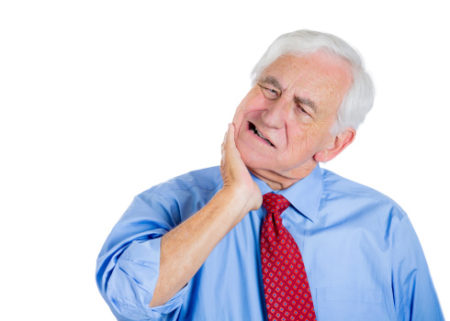
What is TMJ Disorder?
Temporomandibular Joint (TMJ) Disorders are a group of degenerative conditions that affect tens of millions of Americans every year. These disorders are characterized by pain in and around the jaw joint (Temporomandibular Joint) and the surrounding muscles. The joints are located on either side of the face just in front of the ears. TMJ disorder can affect your ability to speak, eat, chew, swallow, make facial expressions, or even breathe.
Do You Have TMJ Disorder?
TMJ disorder can vary in severity, but there are common symptoms that affect everyone with the disorder at some point. These may include: headaches, radiating pain in the face, jaw, or neck, jaw muscle stiffness, limited jaw movement, locked jaw, painful clicking noises, popping or clicking of the jaw joint when opening or closing your mouth, or a change in the way the upper and lower teeth fit together.
TMJ Disorder Appointments in Rocky Hill, CT
Don’t put up with the pain and inconvenience of TMJ disorder a second longer. Make an appointment with Dr. Michalski today. Dr. Michalski has helped scores of Rocky Hill patients find relief from TMJ pain and he can help you too. Dr. Michalski is available for immediate consultations and proudly serves patients throughout Ricky Hill, CT, Hartford, Wethersfield, Cromwell, Newington, Berlin, and the surrounding areas.


